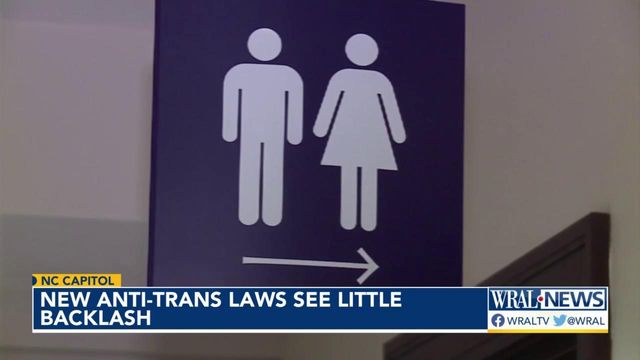Will NC's new transgender laws repel businesses? GOP leaders don't see HB2 repeat
When North Carolina passed a 2016 law regulating what restrooms transgender people could use, the blowback was swift. Business, sports and music leaders across the country condemned it. There were multiple boycotts. It cost the state billions of dollars.
This week, lawmakers voted to ban gender-affirming medical care for transgender kids, prohibit them from playing women’s sports, and require schools to out them to their parents. But this time, there was no blowback.
Senate Leader Phil Berger, R-Rockingham, doesn’t expect to see any. He says there are many more states now passing similar laws, and he thinks they have a lot of popular support.
“The business community has, for the most part, decided that they're going to concentrate on their business and not delve into, well, those matters of policy,” Berger said.
State lawmakers repealed HB2 in 2017 after the state lost an estimated $3.76 billion in economic activity and the political backlash cost Republican Gov. Pat McCrory his reelection bid. He had signed the bill into law.
Since then, the political right has tried to flip the script.
Conservative lawmakers, pundits and political groups have launched boycotts against businesses that elevate or cater to LGBTQ people. Florida Gov. Ron DeSantis, a Republican presidential candidate, in July directed his state government to investigate Bud Light's partnership with transgender social media influencer Dylan Mulvaney. Backlash to the partnership may have led to sales losses that affected the state investments, DeSantis argued.
House Speaker Tim Moore, R-Cleveland, said there’s no comparison between 2016 and today.
Moore believes public opinion has swung in favor of restrictions on transgender athletes, for example, because voters only recently became aware of transgender women competing in women’s sports. If, in 2016, he had even predicted that scenario to someone, “they'd look at you like, you're crazy,” Moore said.
He insisted the new laws are meant to protect transgender children, not target them.
“Folks are looking around saying, ‘Why is this stuff happening?’” Moore said. “It just seems like it's a political agenda, but it's being done at the expense of people's health. It's being done at the expense of (their) safety. It's being done at the expense of just what I would call common sense.”
Meanwhile, LGBTQ advocacy group Equality NC accused lawmakers of bullying transgender kids and their families for political purposes.
"We know that the people of North Carolina want their legislators to focus on bread-and-butter issues," said spokesman Nate Fischer, "not on passing hateful copy-paste legislation from national hate groups."
Equality NC has pledged to fight these new laws in court. Other states with similar laws have seen them put on hold by judges. And, in June, a federal judge permanently struck down an Arkansas ban on medical care for transgender minors, calling it unconstitutional.











